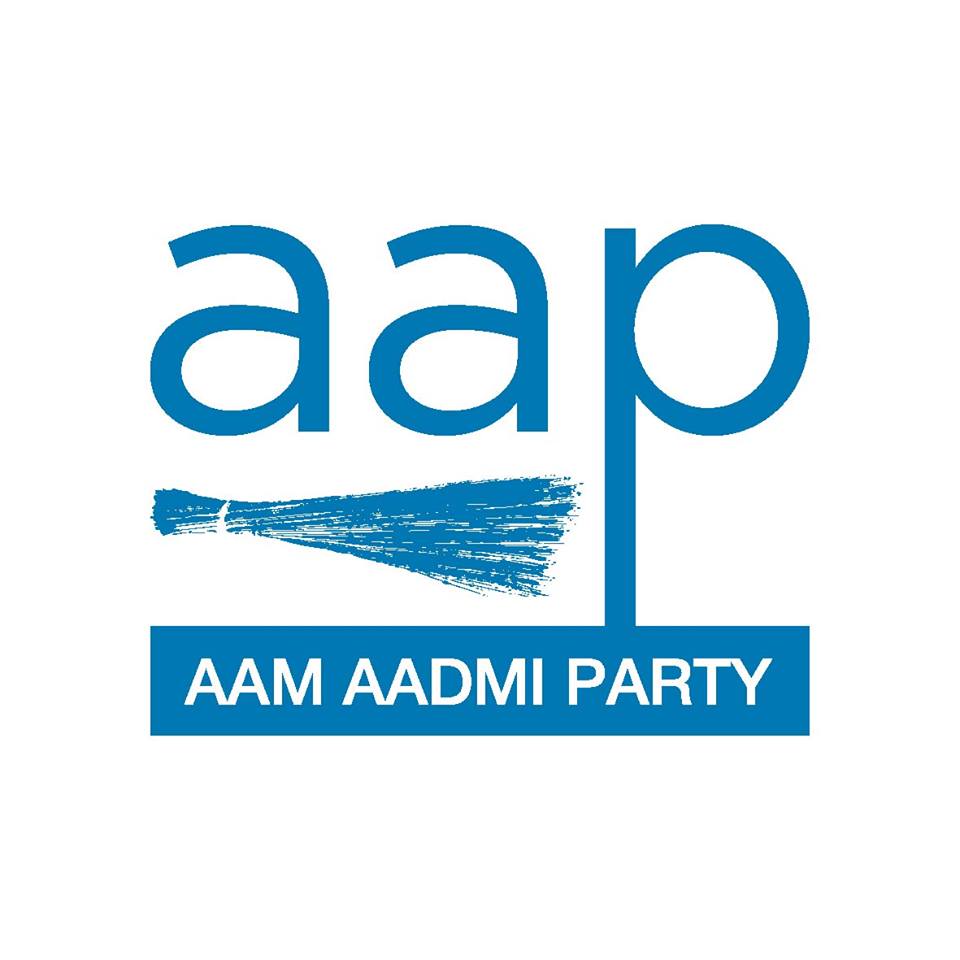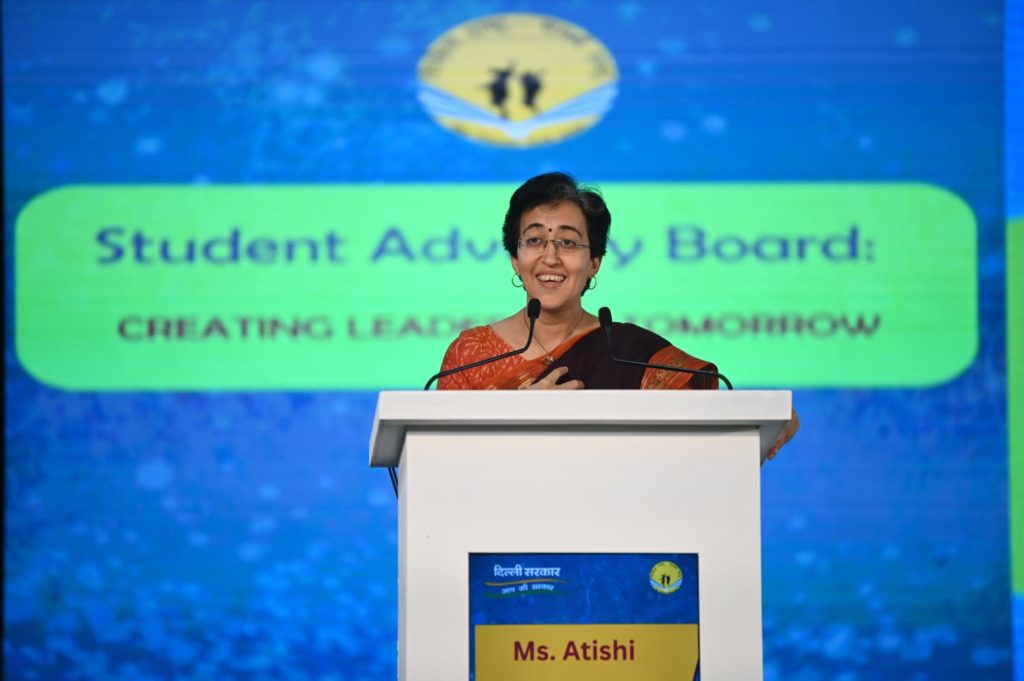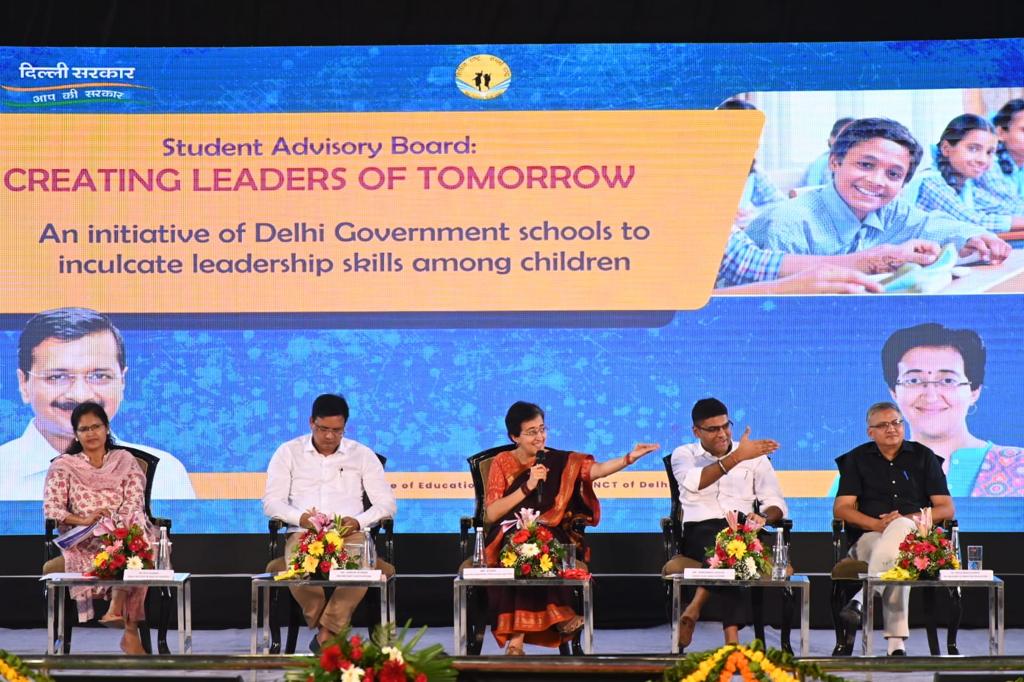Education Minister Atishi today interacted with the newly elected members of Delhi Government Schools’ Student Advisory Boards (SAB) at Thyagraj Stadium. During the interaction on leadership, SAB General Secretaries and members shared their experiences and the impact of SAB work on school improvement by organizing stalls. They also shared the SAB formation process with the Minister and how it has helped them develop skills of leadership, communication, negotiation, critical thinking and problem-solving.
It is to be noted that based on the success of SAB in 20 schools, it is now being implemented in all 1000 plus schools of the Delhi Government.
While congratulating the newly elected SAB members, Education Minister Atishi said, “Kejriwal Government has been diligently working on improving Delhi government schools for the past eight years. It has been the commitment of our Chief Minister Arvind Kejriwal that every child in Delhi receives a high-quality education, regardless of their background. We can now observe numerous positive changes in our government schools, including enhancements to school infrastructure, teacher training, and the creation of new opportunities for students. Consequently, the academic performance of our children has improved, enabling them to gain admission to the country’s premier colleges. However, we felt the need to cultivate leadership qualities in them. Through the Student Advisory Board, and by engaging with the elected members today, I can see this dream becoming a reality.”
She added that the confidence exhibited by the SAB members is truly inspiring. The way they presented their experiences and ideas today demonstrates that Delhi government students are on par with their counterparts in private schools.
The Education Minister further stated, “Before entering politics, I worked as a teacher and often pondered how rote learning impacts students. A student receives 14 years of education but often struggles to apply the concepts learned to solve real-life challenges. The SAB provides students with the opportunity to embrace these challenges and find solutions. While subjects like English, Hindi, Maths, and Science are undoubtedly important, what students are learning about real-life issues through the SAB is even more important.”
While addressing teachers and principals, Atishi emphasized that in Indian society, whether at home or in school, children’s voices are frequently disregarded due to the assumption that they lack knowledge about life. The ideas and thoughts shared by the students here demonstrate their ability to think wisely about issues affecting them. As adults, we need to understand and support them. “I suggest to principals and teachers that when establishing SABs in their schools, they should listen to the voices of the children and grant them the freedom to address their issues. This approach will enable SABs to have a positive impact,” she said.
The Education Minister concluded, “My main takeaway from this event is that if we can provide problem-solving opportunities like this to our students and allow them to find solutions to societal problems, no one can stop India from becoming the No.1 country in the world.”
What is the Student Advisory Board in Delhi Government Schools?
The Student Advisory Board (SAB) in Delhi Government Schools is a platform designed to provide students with an avenue to express their ideas and actively participate in school initiatives. This board holds significant importance as it facilitates students’ learning and personal development within a supportive school environment. Through the SAB, students have the opportunity to engage in school-wide activities, gain insights into the functioning of various aspects, and contribute innovative ideas.
The Board empowers students in Delhi Government Schools to play an active role in shaping their educational experience, fostering a sense of ownership, responsibility, and participation that parallels the workings of a democratic society.
Furthermore, the SAB enables students to address their concerns and challenges, offering them a platform to voice their opinions. This collaborative approach also assists school leaders in enhancing various aspects of the school environment. This mode of operation closely mirrors the principles of a democracy, where students are empowered to be involved in decisions and discussions that affect them, much like their roles in the real world.
How SABs work in Delhi Government Schools?
- Students from grades 7, 8, 9, and 11 participate in the selection process, with two students chosen from each section.
- A democratic process is followed for the selection of the SAB members, with interested students soliciting votes as the student body representatives. A free and fair election is conducted with the help of teachers to select the SAB members.
- Once the SAB pool is formed, two general secretaries from the 11th grade are elected to lead the governing body.
What students and teachers said about the experience of SAB?
“Initially, we had concerns about whether students could meet our leadership expectations for the Student Advisory Board (SAB). Despite our apprehensions, students not only met but exceeded our expectations, wholeheartedly embracing school initiatives with meticulous dedication.”
-Rakesh Kumar, Principal, SoE, Sector 17, Rohini
“At the outset of our SAB efforts, students faced challenges initially. They had apprehensions about their ideas being accepted and heard by peers. However, the success of their first school initiative boosted their confidence and facilitated their smooth adaptation to the process.”
-Namita Gupta, Teacher, Sarvodaya Vidyalaya, Sector 8, Rohini
“Being part of the Student Advisory Board taught me that my voice matters, and my ideas can make a real difference in shaping our school’s future. It helped me develop skills of leadership and communication.”
-Gauri, Shaheed Hemukalani, Lajpat Nagar
“SAB exposed me to the democratic process of an election, marking my initial step towards influencing our school environment. I contested the election and enlightened fellow students about the potential benefits of my selection through an honest and compelling speech. This gave me confidence.“
-Muskaan, ASoSE, Sec 22, Dwarka



